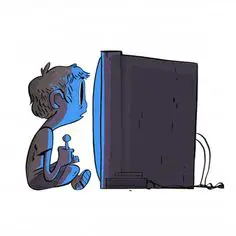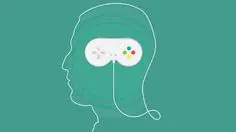
Connecting for Recovery: The Role of Gaming Addiction Support Groups
- Admin
Gaming addiction can feel isolating, but support groups offer individuals a sense of community, understanding, and encouragement on the journey to recovery. These groups provide a safe space for individuals to share their experiences, struggles, and successes with others who can relate. In this article, we'll explore the importance of gaming addiction support groups and how they can play a vital role in promoting healing and recovery.
1. Peer Support and Understanding:
Gaming addiction support groups bring together individuals who are facing similar challenges and share a common goal of overcoming addiction. Through peer support and understanding, participants feel validated in their experiences and find comfort in knowing they are not alone. Sharing stories, insights, and coping strategies with others who can relate fosters a sense of camaraderie and mutual encouragement.
2. Non-Judgmental Environment:
Support groups provide a non-judgmental and accepting environment where individuals can express themselves openly and honestly without fear of criticism or stigma. Participants are encouraged to share their thoughts, feelings, and struggles without judgment, fostering a sense of safety and trust within the group. This acceptance allows individuals to explore their addiction, identify triggers, and work towards recovery without feeling ashamed or embarrassed.
3. Accountability and Motivation:
Being part of a support group holds individuals accountable for their actions and commitments to recovery. Knowing that others are counting on them and sharing similar goals motivates participants to stay committed to their recovery journey. Group members provide encouragement, celebrate milestones, and offer support during challenging times, empowering individuals to persevere and continue making progress towards their recovery goals.
4. Access to Resources and Information:
Support groups serve as a valuable source of information and resources for individuals seeking help for gaming addiction. Group members may share insights, tips, and strategies for managing cravings, coping with triggers, and building a healthier relationship with gaming. Additionally, support groups may invite guest speakers, provide educational materials, or offer referrals to professional services to further support participants in their recovery efforts.
5. Continued Growth and Learning:
Participating in a support group is an ongoing process of growth, learning, and self-discovery. Group members have the opportunity to learn from each other's experiences, gain new perspectives, and develop skills for managing addiction and promoting overall well-being. As individuals progress in their recovery journey, they may also have the opportunity to mentor and support others who are earlier in their recovery process, further strengthening the sense of community within the group.
Conclusion:
Gaming addiction support groups offer a powerful source of support, understanding, and encouragement for individuals seeking to overcome addiction and reclaim control over their lives. By providing a non-judgmental environment, peer support, accountability, access to resources, and opportunities for growth and learning, support groups play a vital role in promoting healing, recovery, and personal transformation. If you or someone you know is struggling with gaming addiction, consider reaching out to a support group for guidance, encouragement, and connection on the journey to recovery.
